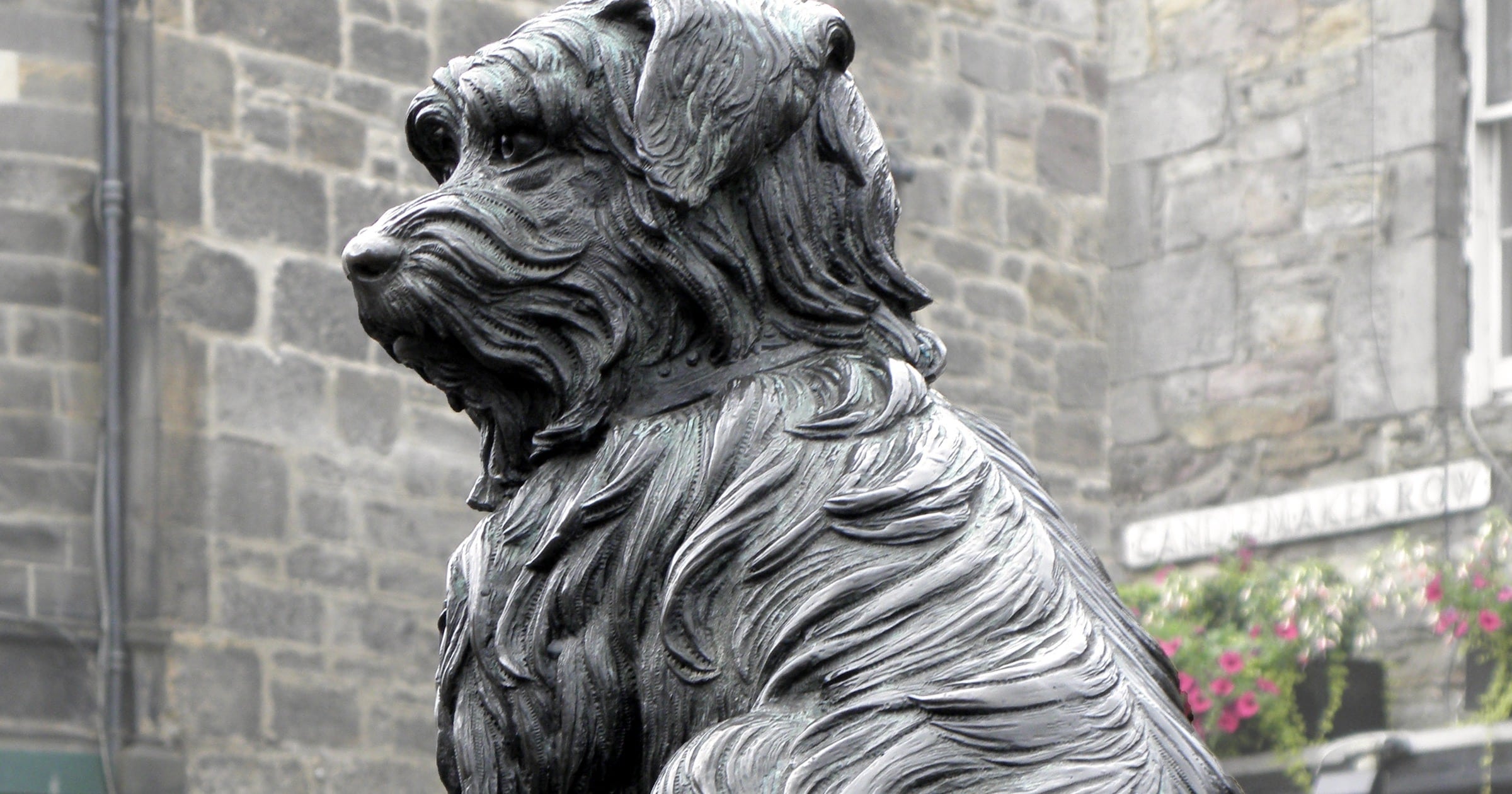Just how and when dogs originated has been the subject of much research. In one account, “Dogs originated from wolves domesticated in Europe, 19,000-32,000 years ago,” based on DNA studies (2013). But other research points to many other possibilities: “Central Asia, the Middle East, South Asia or Southeast Asia” some time between 10,000 and 38,000 years ago. Some think they were tamed twice.
Historian Julien d’Huy of the College of France in Paris suggests another approach, looking at stories about dogs:
“With mythology, we can have explanations of archaeology, we can have reasons for domestication, we can test hypotheses,” he says.
D’Huy found three core storylines for the earliest myths related to dogs: The first links dogs with the afterlife, the second relates to the union of humans and dogs, and the third associates a dog with the star Sirius. Versions of these stories are found in many cultural regions around the world. He then borrowed statistical tools from biology to create family trees of myths, showing how the stories evolved as they followed humans from one region of the world to another.
ELYSE DEFRANCO, “HOW MYTHOLOGY COULD HELP DEMYSTIFY DOG DOMESTICATION” AT SCIENCE NEWS (SEPTEMBER 7, 2022)
But That’s Just Mythology, Right?
Well yes, but many myths originate in real world experiences. If people tell stories about dogs, that’s probably because there are dogs in their environment. After all, dogs aren’t dreadful like dragons or supernatural like fairies. So if you wanted to gain a large following as a storyteller in antiquity, you’d only include dogs — or wolves or rabbits, for that matter— if they were animals people already related to. Here’s what D’Huy proposes:
Folktales about dogs stemmed from Central and Eastern Asia and spread to Europe, the Americas and later Australia and Africa, d’Huy reports in the June Anthropozoologica. This mythological travel route parallels a proposed path of dog domestication borne out by genetic and fossil evidence.
ELYSE DEFRANCO, “HOW MYTHOLOGY COULD HELP DEMYSTIFY DOG DOMESTICATION” AT SCIENCE NEWS (SEPTEMBER 7, 2022); THE PAPER REQUIRES A FEE OR SUBSCRIPTION.
D’Huy points to the grave from 14,000 in what is now Germany which held a couple and two dogs. The woman’s hand was resting on the head of one of the dogs. There must have been a story there.
The fact that we have had a special relationship with dogs for a very long time is attested by the sheer number of dog burial sites, some of which include grave gifts left for the dogs:
Grave gifts imply, among other things, a future in which the deceased will need the gifts. Some other thoughts about our relationship with dogs:
Dogs “In a Barthesian Sense”
We may choose them in part in order to communicate:
We signal our class, our preferences and our personality through our choice of dog as a pet. By choosing a Labrador, an owner may be signalling their suburban lifestyle or traditional values. The semiotics of dog ownership relates to both our communication with the dog, as we name and treat it, and our communication to the rest of society of what our possession means. And this meaning has changed through the co-evolution of our relationship with animals, much as dogs themselves are sometimes regarded as having domesticated themselves in their affiliation with humans. That it was not our choice but theirs…
Dogs are, in a Barthesian sense, the signifier and the signified. They straddle a line between self and other (in the ways we have ‘humanised’ them, yet use them as objects). If I tell you someone has a pet pitbull, you might make assumptions about this person — very different from the assumptions you’d make about an acquaintance with a Yorkshire terrier. Breeds have accrued associations, from their presence in popular culture, to their phenotype, to our familiarity with them in daily life. Simply owning a dog is an exercise in expressing our cultural values, as our furry totem reflects them to the world.
KATRINA GULLIVER, “SEMIOTICS OF DOGS” AT AEON (AUGUST 4, 2022)
Dogs, some researchers now think, learned to get along with us simply because they stopped being afraid of us:
In a review published last week in the journal Trends in Cognitive Sciences, researchers Friederike Range and Sarah Marshall-Pescini of the Konrad Lorenz Institute of Ethology at the University of Veterinary Medicine in Vienna questioned whether dogs really are less aggressive and show more advanced social thinking abilities than modern-day wolves, thus challenging some basic tenets of dog domestication…
Together, recent science suggests that dog domestication didn’t lead to less aggression or enhanced socio-cognitive abilities. Rather, domestication may have simply made dogs less fearful and more subservient. “Compared with wolves, dogs seek to avoid conflicts… and might have an increased inclination to follow rules, making them amenable social partners,” the researchers wrote.
ROSS POMEROY, “THE “MEAN WOLF TO FRIENDLY DOG” DOMESTICATION STORY MIGHT BE WRONG” AT BIG THINK (FEBRUARY 15, 2022) THE PAPER IS OPEN ACCESS.
Read the rest at Mind Matters News, published by Discovery Institute’s Bradley Center for Natural and Artificial Intelligence.









































